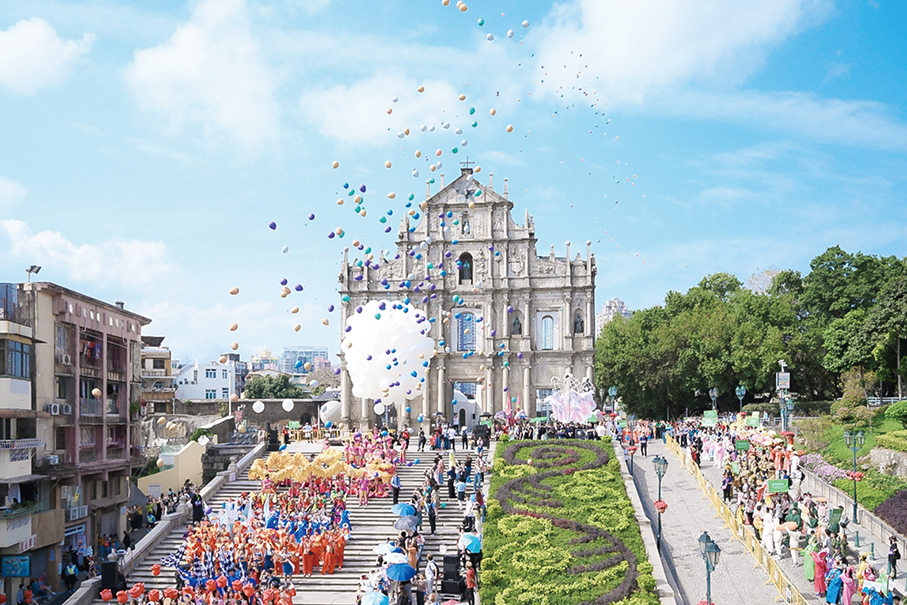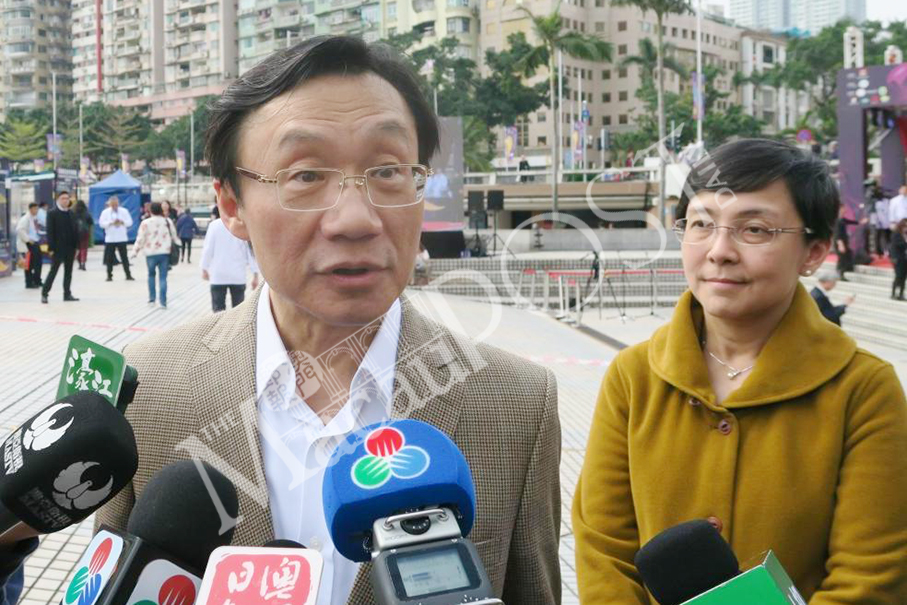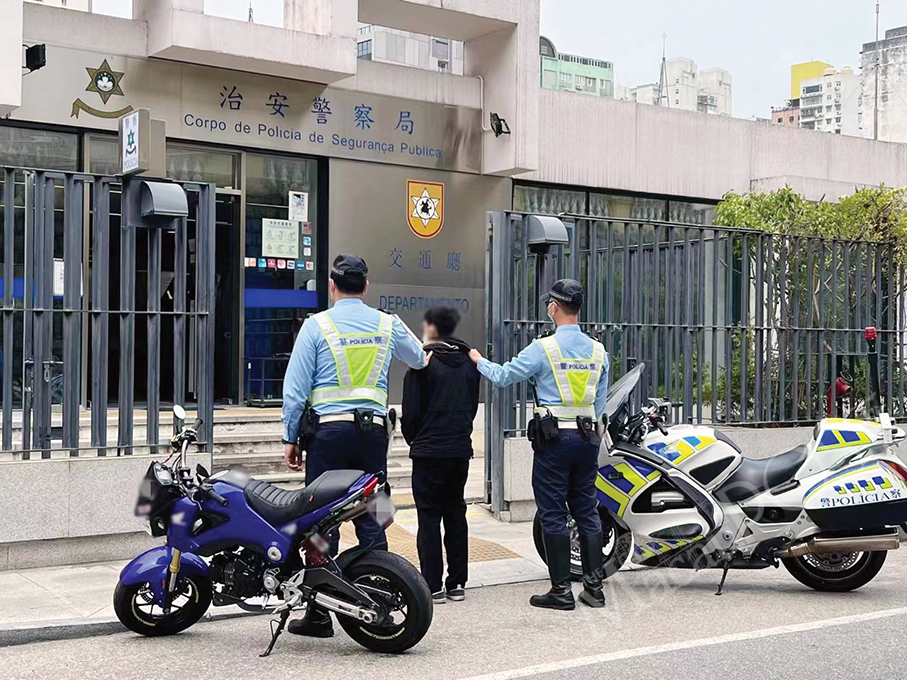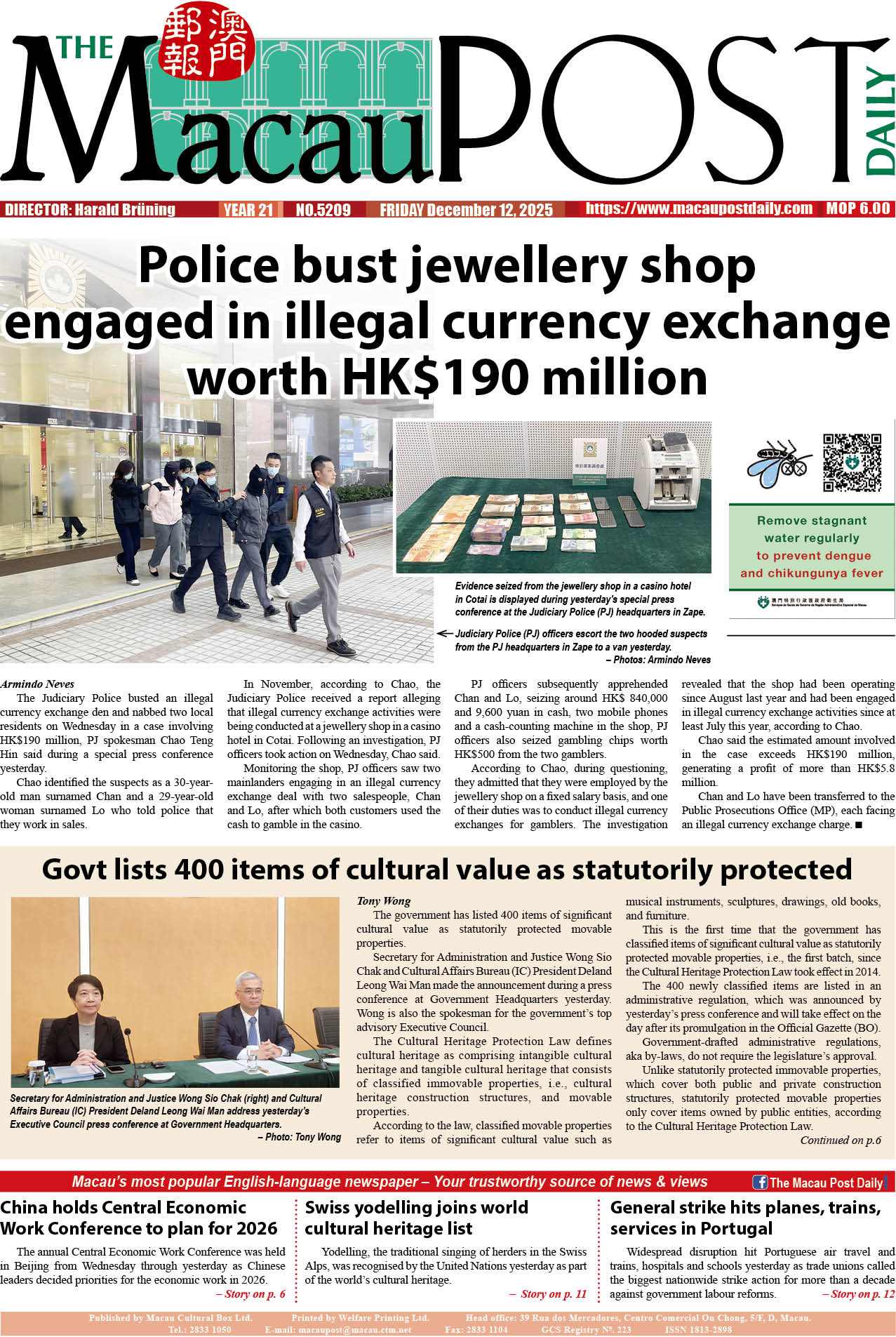Macau has been chosen as one of the two Chinese 2025 Culture Cities of East Asia (CCEA).
The Office of Secretary for Social Affairs and Culture Elsie Ao Ieong U (GSASC) announced in a statement yesterday that after final evaluations carried out by the Ministry of Culture and Tourism (MCT) in Beijing, Macau has been designated as 2025 Culture City of East Asia.
According to mainland news reports yesterday, Huzhou city in Zhejiang province has been chosen as the other 2025 Culture City of East Asia.
The Culture City of East Asia project is an arts and culture naming programme jointly launched by China, Japan and South Korea about a decade ago. Each of the three countries had chosen and designated one city as their respective Culture City of East Asia every year since the first and 2014 CCEA, but since the 2021 CCEA, China has named two Culture Cities of East Asia every year, with Japan and South Korea each continuing to designate one.
According to the website of the Trilateral Cooperation Secretariat (TCS) – an international organisation jointly inaugurated by China, Japan and South Korea in 2011, the Culture City of East Asia project was established in accordance with an agreement made at the 4th Trilateral Culture Ministers’ Meeting held in Shanghai in May 2012. According to the website, every year the three nations each select a city (China choosing two from 2021) representing their country’s traditional culture or a city aiming to develop cultural arts. At the selected cities, various cultural arts events, as well as cultural exchange events are held. The project aims not only to promote mutual understanding and a sense of solidarity within East Asia, but also to enhance global competitiveness of East Asian cultures, according to the TCS website.
The TCS is headquartered in Seoul.
Weifang city in Shandong province and Liaoning province’s port city of Dalian were designated as the two Chinese 2024 Culture Cities of East Asia (CCEA), while Ishikawa in Japan and Gimhae in South Korea were selected by the two countries respectively.
Until Macau’s designation as a 2025 Culture City of East Asia, other Chinese cities winning the title since the project’s launch are all mainland cities.
Earlier this year, 14 cities, including Macau and Huzhou, were shortlisted as candidate cities for the 2025 Culture Cities of East Asia based on their applications. After preliminary evaluations and on-site inspections by a committee set up by the Ministry of Culture and Tourism, six of the cities, including Macau and Huzhou, entered the final evaluation round.
Japan and South Korea are yet to announce their respective selection of their 2025 Culture Cities of East Asia.
Yesterday’s GSASC statement said that earlier this year the Macau government had been intensively working on applying for Macau to become a 2025 Culture City of East Asia, after which Macau was chosen as one of the six finalists following preliminary evaluations and on-site inspections by a committee, the statement noted.
The statement noted that Ao Ieong led a delegation to Beijing to attend a meeting held by the Ministry of Culture and Tourism on May 10 where she presented Macau’s application to the committee members and answered their questions.
Yesterday’s statement said that Macau has been designated as a 2025 Culture City of East Asia after passing the committee’s final evaluation by ranking first.
The statement said that Macau having been chosen as a 2025 Culture City of East Asia “has created another golden business card” for Macau as an international metropolis.
After being designated as a 2025 Culture City of East Asia, the statement said, the Macau government will enhance its role as an important link in the Belt and Road Initiative (BRI), strengthening international cultural and arts exchange. The statement also said that the Macau government will launch a raft of activities and events such as cultural exhibitions, international conferences, exhibitions and shows of intangible cultural heritage, as well as various other large-scale cultural, sporting and tourist activities.

This file photo released by the Secretariat for Social Affairs and Culture (GSASC) yesterday shows performers gathering in front of the UNESCO World Heritage-listed Ruins of St Paul’s landmark during the 2024 Macao International Parade in March this year.








